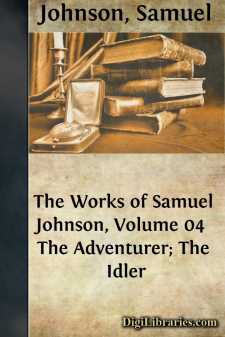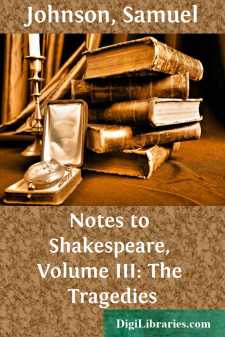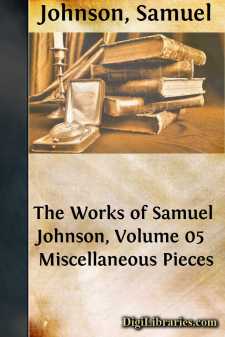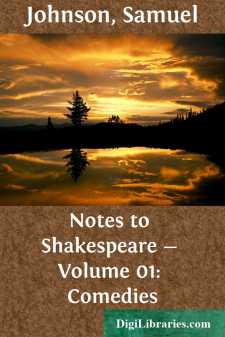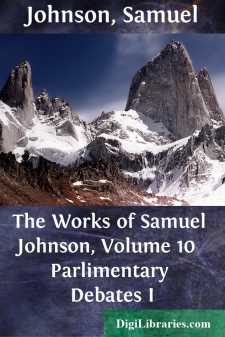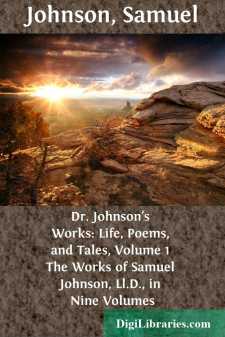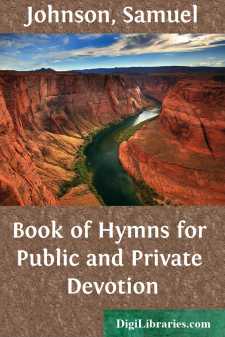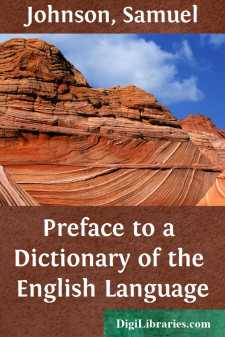Categories
- Antiques & Collectibles 13
- Architecture 36
- Art 48
- Bibles 22
- Biography & Autobiography 813
- Body, Mind & Spirit 142
- Business & Economics 28
- Children's Books 17
- Children's Fiction 14
- Computers 4
- Cooking 94
- Crafts & Hobbies 4
- Drama 346
- Education 46
- Family & Relationships 57
- Fiction 11829
- Games 19
- Gardening 17
- Health & Fitness 34
- History 1377
- House & Home 1
- Humor 147
- Juvenile Fiction 1873
- Juvenile Nonfiction 202
- Language Arts & Disciplines 88
- Law 16
- Literary Collections 686
- Literary Criticism 179
- Mathematics 13
- Medical 41
- Music 40
- Nature 179
- Non-Classifiable 1768
- Performing Arts 7
- Periodicals 1453
- Philosophy 64
- Photography 2
- Poetry 896
- Political Science 203
- Psychology 42
- Reference 154
- Religion 513
- Science 126
- Self-Help 84
- Social Science 81
- Sports & Recreation 34
- Study Aids 3
- Technology & Engineering 59
- Transportation 23
- Travel 463
- True Crime 29
Sort by:
by:
Samuel Johnson
THE ADVENTURER. No. 34. SATURDAY, MARCH 3, 1753. Has toties optata exegit gloria pænas. Juv. Sat. x. 187. Such fate pursues the votaries of praise. TO THE ADVENTURER. SIR, Fleet Prison, Feb. 24. To a benevolent disposition, every state of life will afford some opportunities of contributing to the welfare of mankind. Opulence and splendour are enabled to dispel the cloud of adversity, to dry up the...
more...
by:
Samuel Johnson
TRAGEDIES Vol. IV (392) Most of the notes which the present editor has subjoined to this play were published by him in a small pamphlet in 1745. I.i (393,*) Enter three Witches] In order to make a true estimate of the abilities and merit of a writer, it it always necessary to examine the genius of his age, and the opinions of his contemporaries. A poet who should now make the whole action of his...
more...
by:
Samuel Johnson
MY LORD, When first I undertook to write an English Dictionary, I had no expectation of any higher patronage than that of the proprietors of the copy, nor prospect of any other advantage than the price of my labour. I knew that the work in which I engaged is generally considered as drudgery for the blind, as the proper toil of artless industry; a task that requires neither the light of learning, nor...
more...
by:
Samuel Johnson
Dr. Johnson's Preface to Shakespeare is one of the most famous critical essays of the eighteenth century, and yet too many students have forgotten that it is, precisely, a preface to the plays of Shakespeare, edited by Dr. Johnson himself. That is to say, the edition itself has been obscured or overshadowed by its preface, and the sustained effort of that essay has virtually monopolized scholarly...
more...
by:
Samuel Johnson
PREFATORY OBSERVATIONS TO THE PARLIAMENTARY DEBATES. The government of this country has long and justly been considered the best among the nations of Europe; and the English people have ever evinced a proportionate desire for information in its proceedings. But in the earlier days of our constitution, we shall find that much jealousy on the part of our rulers debarred the people from access to the...
more...
by:
Samuel Johnson
INCH KEITH I had desired to visit the Hebrides, or Western Islands of Scotland, so long, that I scarcely remember how the wish was originally excited; and was in the Autumn of the year 1773 induced to undertake the journey, by finding in Mr. Boswell a companion, whose acuteness would help my inquiry, and whose gaiety of conversation and civility of manners are sufficient to counteract the...
more...
by:
Samuel Johnson
AN ESSAY ON THE LIFE AND GENIUS OF SAMUEL JOHNSON, LL.D. When the works of a great writer, who has bequeathed to posterity a lasting legacy, are presented to the world, it is naturally expected that some account of his life should accompany the edition. The reader wishes to know as much as possible of the author. The circumstances that attended him, the features of his private character, his...
more...
by:
Samuel Johnson
Invitation. 1 Come to the house of prayer, O ye afflicted, come! The God of peace shall meet you there, He makes that house His home. 2 Come to the house of praise, Ye who are happy now; In sweet accord your voices raise, In kindred homage bow. 3 Ye aged, hither come, For ye have felt His love; Soon shall ye lift a holier song In fairer courts above. 4 Ye young, before His throne, Come, bow; your...
more...
by:
Samuel Johnson
It is the fate of those who toil at the lower employments of life, to be rather driven by the fear of evil, than attracted by the prospect of good; to be exposed to censure, without hope of praise; to be disgraced by miscarriage, or punished for neglect, where success would have been without applause, and diligence without reward. Among these unhappy mortals is the writer of dictionaries; whom mankind...
more...


